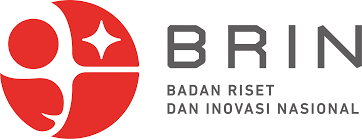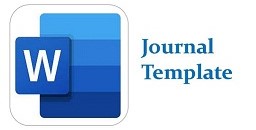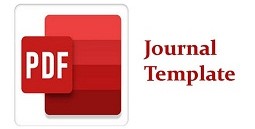Applicability of Islamic Education Philosophy to Educational Level Units from an Islamic Studies Perspective
DOI:
https://doi.org/10.58355/attaqwa.v2i4.56Keywords:
Philosophy of Islamic Education, Islamic Studies, Education Level UnitsAbstract
This research aims to discuss the application of Islamic educational philosophy in developing education at the Islamic education unit level. The formulation of the problem in this research is how is the application of philosophy in building learning concepts, curriculum and actualizing students' self-development? This research method uses a literature study approach, with descriptive data analysis techniques. The results of this research explain that Islamic educational philosophy basically continues to encourage in-depth development of educational concepts in general. First, especially in the realm of learning concepts, learning also involves the process of organizing information, forming concepts and developing skills. With technological developments, learning is also increasingly integrated with digital tools and resources, opening up new opportunities in delivering learning material. Second, curriculum management in Islamic educational philosophy also emphasizes the importance of a student-centered learning approach. Teachers must understand the needs and potential of individual students to be able to help them develop holistically, both academically and morally. Third, self-actualization and development based on Islamic educational philosophy, is important to create an environment that supports individual spiritual and moral growth. This environment involves families, communities, and educational institutions that encourage individuals to live lives in accordance with Islamic principles.
Downloads
References
Fachrudin, Y. (2021). STRATEGI PENINGKATAN MUTU SEKOLAH BERBASIS PESANTREN. Dirasah : Jurnal Pemikiran Dan Pendidikan Dasar Islam, 4(2), Article 2. https://doi.org/10.51476/dirasah.v4i2.277
Huda, N. (2017). MANAJEMEN PENGEMBANGAN KURIKULUM. AL-TANZIM: Jurnal Manajemen Pendidikan Islam, 1(2), Article 2. https://doi.org/10.33650/al-tanzim.v1i2.113
Irawandi, & Fajeriadi, H. (2019). Pemanfaatan Lingkungan sebagai Sumber Belajar untuk Meningkatkan Minat dan Hasil Belajar Siswa SMA di Kawasan Pesisir, Kalimantan Selatan. Jurnal Biologi-Inovasi Pendidikan, 1(2). https://ppjp.ulm.ac.id/journal/index.php/bino/article/view/7859
Jaya, W. S. (2021). Kinerja Guru Ditinjau dari Gaya Kepemimpinan Kepala Sekolah dan Motivasi Kerja. Jurnal Obsesi : Jurnal Pendidikan Anak Usia Dini, 6(3), Article 3. https://doi.org/10.31004/obsesi.v6i3.1738
Keladu. (2023). Kesamaan Proporsional dan Ketidaksamaan Perlakuan dalam Teori Keadilan Aristoteles. DISKURSUS - JURNAL FILSAFAT DAN TEOLOGI STF DRIYARKARA, 19(1), 7–78.
Keraf, S. (2014). Fislsafat Lingkungan Hidup Alam sebagai Sebuah Sistem Kehidupan Bersama Fricjof Capra. PT. Kanisius.
Krisbiyanto, A. (2019). Efektifitas Kepemimpinan Kepala Madrasah terhadap Mutu Pendidikan MTsN 2 Mojokerto. Nidhomul Haq : Jurnal Manajemen Pendidikan Islam, 4(1), Article 1. https://doi.org/10.31538/ndh.v4i1.182
Lorens, B. (2002). Kamus Filsafat. Gramedia.
Muhammad, H., Murtinugraha, R. E., & Musalamah, S. (2020). Pengembangan Media Pembelajaran E-Learning Berbasis Moodle Pada Mata Kuliah Metodologi Penelitian : Jurnal Pensil : Pendidikan Teknik Sipil, 9(1), Article 1. https://doi.org/10.21009/jpensil.v9i1.13453
Munajim, A., Barnawi, B., & Fikriyah, F. (2020). Pengembangan Kurikulum Pembelajaran di Masa Darurat. DWIJA CENDEKIA: Jurnal Riset Pedagogik, 4(2), Article 2. https://doi.org/10.20961/jdc.v4i2.45288
Murti, D. P. (2018). Pembelajaran Literasi: Strategi Meningkatkan Kemampuan Literasi Matematika, Sains, Membaca, dan Menulis.
Nurgiansah, T. H. (2019). PEMUTAKHIRAN KURIKULUM PENDIDIKAN KEWARGANEGARAAN DI ERA REVOLUSI INDUSTRI 4.0. PROSIDING SEMINAR NASIONAL “REAKTUALISASI KONSEP KEWARGANEGARAAN INDONESIA,” 1, 95–102.
Poetra, M. I. I. (2021). PENGARUH PENGEMBANGAN KARIR DAN DUKUNGAN PIMPINAN TERHADAP RETENSI KARYAWAN PADA PT. BANK MANDIRI TBK CABANG MAKASSAR [Thesis]. http://repository.stienobel-indonesia.ac.id/en/handle/123456789/451
Purwanto, A., Pramono, R., Asbari, M., Hyun, C. C., Wijayanti, L. M., Putri, R. S., & Santoso, P. B. (2020). Studi Eksploratif Dampak Pandemi COVID-19 Terhadap Proses Pembelajaran Online di Sekolah Dasar. EduPsyCouns: Journal of Education, Psychology and Counseling. https://ummaspul.e-journal.id/Edupsycouns/article/view/397
Rais, W. (2019, Maret 5). IMPLEMENTASI MANAJEMEN PENDIDIKAN ISLAM DALAM KONSEP MANAJEMEN HUBUNGAN MASYARAKAT DENGAN SEKOLAH [MPRA Paper]. https://mpra.ub.uni-muenchen.de/93964/
Saadati, B. A., & Sadli, muhamaad. (2019). Analisis pengembangan budaya literasi dalam meningkatkan minat membaca mahasiswa di lembaga pendidikan dasar. TERAMPIL: Jurnal Pendidikan dan Pembelajaran Dasar, 9(2).
Saputra, B., & Suasti, Y. (2019). Aspirasi Orang Tua tentang Pendidikan Anak. JURNAL BUANA, 3(1), Article 1. https://doi.org/10.24036/student.v3i1.330
Sugiyono. (2016). Metode Penelitian Kuantitaif, Kualitatif dan R&D. Alfabeta.
Syaipudin, L. (2023). Teacher Learning Strategies In Shaping Student Character In Islamic Cultural History Lessons At SMP 45 Latukan Karanggeneng Lamongan. Jurnal Pendidikan Indonesia, 1(02), Article 02.
Syaipudin, L., & Awwalin, I. N. (2021). The Learning Routines for SD/MI Level in terms of the Impact Covid-19 Pandemic (Case study at MI Al-Muhajarin Latukan Karanggeneng Lamongan). Edukasi: Journal of Educational Research, 1(1), Article 1.
Widiyanto, D. (2017). Pembelajaran Toleransi dan Keragaman dalam Pendidikan Pancasila dan Kewarganegaraan di Sekolah Dasar. 109–115. http://eprints.uad.ac.id/9769/
Downloads
Published
How to Cite
Issue
Section
License
Copyright (c) 2023 Muhammad Rizqi Pratama, Zukhrufa Akbar Ramadan, Imroatus Solichah, Siti Ayu Nur Wanda Sari, Salsabila Nur Jannah, Latif Syaipudin

This work is licensed under a Creative Commons Attribution 4.0 International License.















